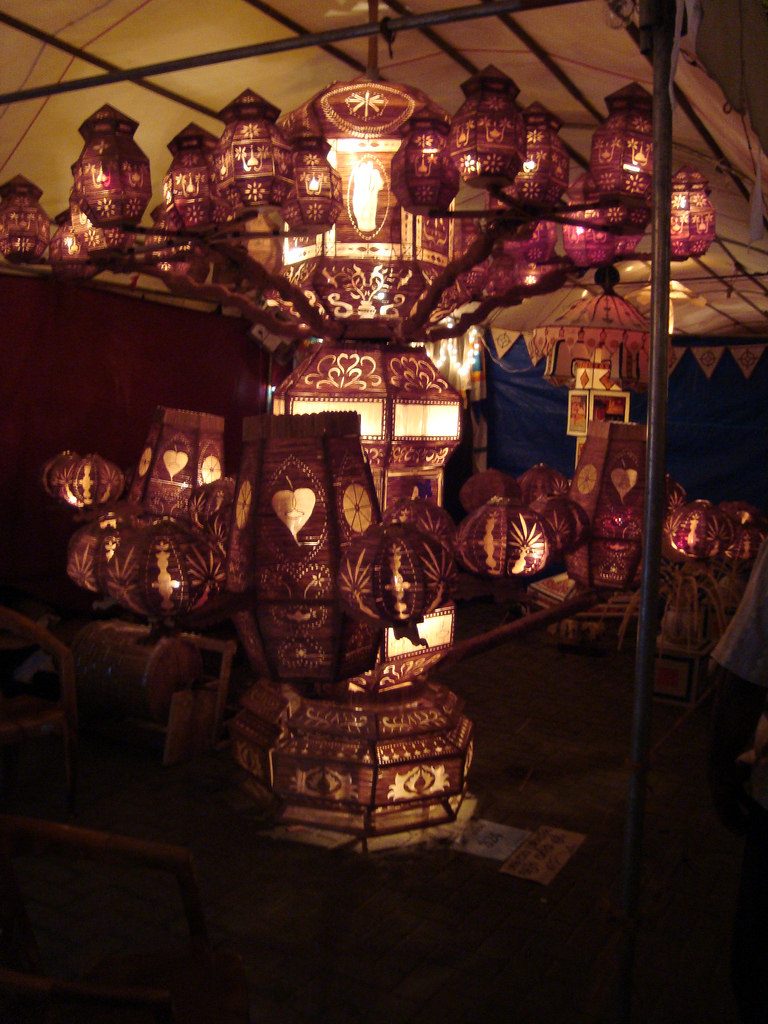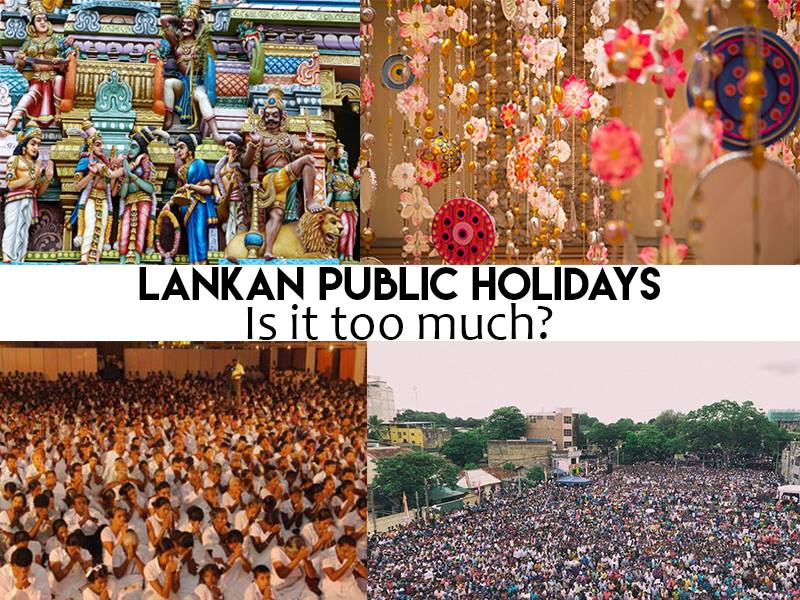2016 Sep 21
by Vandana Hiranand
After nearly three decades, the civil war in Sri Lanka ended, bringing with it a level of peace and prosperity the country had not seen in years. As such, an increased priority was given to building unity within the country. In an effort to equalize the importance given to religious occasions towards all four communities within Sri Lanka, the number of public holidays gradually increased.
This change has had a large impact on our nation, both positive and negative.
In 2016 alone, Sri Lanka has a whopping 27 public holidays throughout the year. This includes 12 full moon Poya days, with one each month. The remaining 15 holidays are allocated for various religious festivals or days, for Buddhists, Christians, Muslims and Hindus alike. No doubt, public holidays have enormous advantages. Having a day off in the middle of a stressful week, or having a weekend extended into a long weekend, is extremely beneficial for the mental and physical health of workers.
These public holidays allow workers to relax, and relieve them from the inevitable stress which comes from working long hours. It allows for a little breathing room, and can definitely increase worker productivity in general. A long weekend provides the opportunity for a short vacation, where families take trips out of Colombo, and travel down south or upcountry. In short, they offer the perfect medium to relax and spend quality time with one’s family. It can also do wonders for one’s mental health, which can be reflected in the efficiency of the worker and company in general.

Moreover, the importance which is now given towards each religion helps to rebuild a sense of unity within our country. Partaking in and enjoying the various traditions and ceremonies of each religious festival does a wonderful job of bringing communities together. It is vital in strengthening a nation which has undergone, and is currently undergoing, many cultural disputes.
And yet, we must question whether Sri Lanka possibly has too many public holidays, and the impact this has on our economy. In comparison to the public holidays of other emerging and developed countries, Sri Lanka seems to have just too many.
In 2015, 7% of the weekdays were taken as time off due to holidays issued by the government. Sri Lanka is still emerging from the economic downfall caused by the civil war. As such, the high number of annual public holidays is not favorable towards business productivity and the annual revenue generated. Many businesses released complaints that such holidays negatively affect the growth of the company and annual income, especially when these public holidays give way to a long weekend. Various businesses come to a standstill during these long breaks, especially those which are tied to companies overseas.
On the other hand, reports show that public holidays and extended weekends generates large revenue for the entertainment industry and leisure sector. Hotels, shopping malls, restaurants, tourist destinations and other related businesses are boosted during these holidays. Such businesses reap the benefits of the high number of public holidays in our country. This, in turn, stimulates the economy.

As such, it is difficult to quantifiably measure the economic effect of public holidays in Sri Lanka. Certain studies show that the improved mental status of employees after a holiday generates more productivity than that which is lost due to the very existence of these holidays. However, these qualitative factors are hard to measure. This goes hand in hand with the increased revenue generated from the leisure and entertainment sector.
Additionally, the question arises as to whether the original purpose of these public holidays is still intact. While they are intended for the observing of religious festivals and practices, many now wonder whether they have, in fact, lost all meaning. Most have simply become an occasion to relax and enjoy the given break, which isn’t problematic in itself. However, the issue arises when most of these given occasions are not treated with the initial intent.
Nevertheless, it is needless to say that the existence of public holidays has a rather high number of advantages. However, we are yet to determine whether Sri Lanka can function productively as a country and cause positive economic growth while still entertaining nearly 30 public holidays every year.






